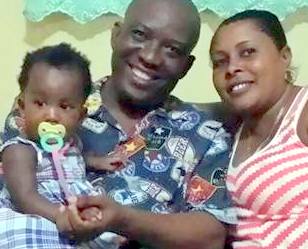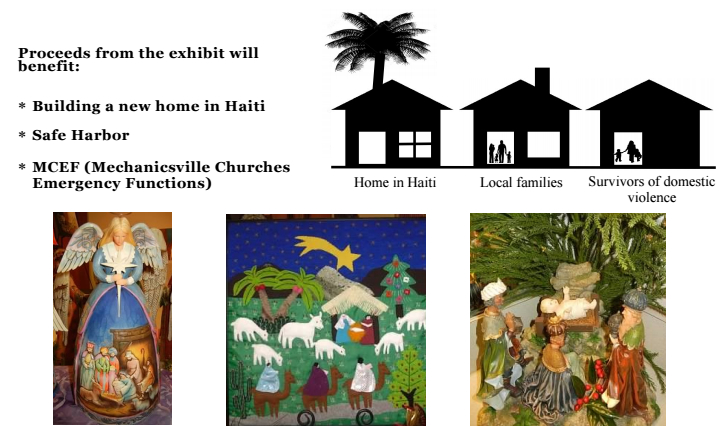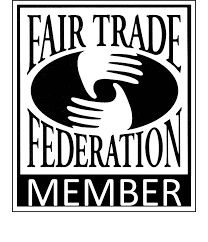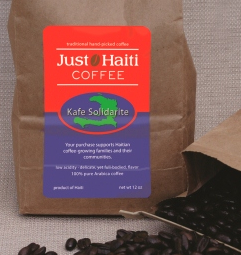Haiti - Agriculture:
Contribution to the egg industry in the economy
30/12/2015
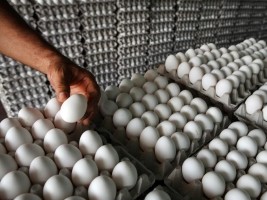
In Haiti from 2010 to 2015, intensive egg production has increased fivefold, from 50,000 to 250,000 layers or approximately 1 million to over 6 million eggs per month. Haitian Production offers a very advantageous quality products, producers arriving to compete imported eggs that are in most cases the result of dumping and smuggling.
A study (2015) commissioned by the Haitian Government, shows that the country under the leadership of the Ministry of Agriculture, can continue this expansion of production for the benefit of the population on condition of solving certain constraints.
In addition, to raise all these constraints it is necessary that agro-entrepreneurs of the sector benefiting from technical and financial advice. These constraints will be better resolved if all partners in the sector manage to coordinate their actions.
It is possible to envisage a substantial increase in egg production to reach 80% of self-supply of the domestic market.
|
Collaborating with the people of Haiti to assist them with being a self sufficient, interdependent nation with dignity.
Thursday, December 31, 2015
Eggs!
Tuesday, December 22, 2015
Haiti postpones scheduled presidential runoff
AP
6:49 p.m. EST December 21, 2015
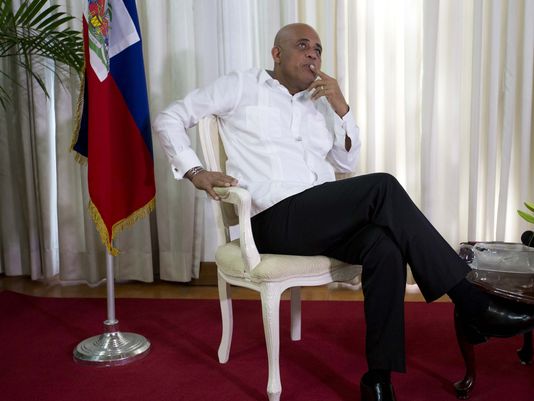
PORT-AU-PRINCE, Haiti (AP) - Haitian electoral authorities have postponed presidential and legislative runoffs set for this weekend.
In a brief statement issued Monday evening, Haiti's Provisional Electoral Council said the vote scheduled for Dec. 27 has been postponed until a special commission can make its recommendations.
In recent days, President Michel Martelly announced that a five-member commission would assess Haiti's electoral process ahead of the runoffs that opposition factions have threatened to derail because of suspicions of widespread fraud.
Council spokesman Roudy Stanley Penn says a new election date should be announced soon.
For weeks, an opposition alliance has demanded an independent review of late October elections that it insists were rigged in favor of the government-backed presidential candidate.
The commission has been rejected by the opposition. Its members have not yet met.
|
Thursday, December 10, 2015
Tuesday, December 1, 2015
Support the BDE
Haiti.Today.Tomorrow supports/promotes the Bureau of Education (BDE) in Hinche, as it serves as an integral component of the Haitian infrastructure. We encourage your support as well, Steve
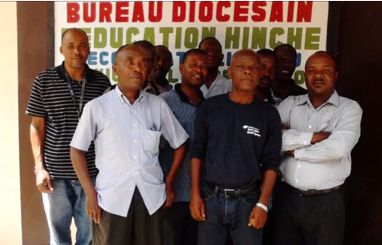
Spend 2 minutes/38 seconds watching the BDE's #Giving Tuesday message about how they are Giving Hope through Education and how to support the BDE on this #Giving Tuesday.
Why Support the BDE?
The BDE leadership team and supervisors assist school principals and pastors in the operations of the primary and secondary schools throughout the Diocese providing administrative support as well as assistance with hiring and training teachers.
Richard and Msgr. Jethro also assist the pastors and principals with conflict resolution when problems arise with teacher contracts or other concerns with a schools operation.
Many of the schools in the Diocese of Hinche have very limited resources and are unable to purchase supplies and textbooks for students to use. In these cases the Bureau of Education works with other partners to find funding to provide basic materials to these schools ensuring every child has a chance to learn and improve their future through education.
In addition to the administrative support for the schools, the supervisors and staff provide teacher training and support for the formation of student government programs, parent teacher organizations and community leadership groups through the Program Educative Catholic, PECH.
The goals of the PECH program are to create Christian leaders for a new society by providing leadership skills and experience to students in both primary and secondary school so that they are prepared to become the future leaders of their communities with a focus on Christian values, protecting the environment and working for the common good.
The four supervisors visit all schools in the Diocese providing training and support for teachers to improve the quality of education in all schools.
During visits supervisors observe teachers during class completing a report detailing the teacher's skills and abilities and sit down with the teachers and principals to discuss the observations and any suggestions for improvements. The supervisors also provide specific training to individual schools or teachers at the request of the principal or pastor in subjects the teachers lacks the required knowledge or skills to teach.
The Bureau of Education in Hinche is a great example of Haitian Leadership that is doing great work to support the needs of the local community.
The Bureau of Education in Hinche is recognized as one of the best in the country by the Bishops Commission on Catholic Education, representatives of CRS in Haiti and members of Notre Dame's Alliance for Catholic Education in Haiti. The strength of the staff and the quality of the work they are able to complete is providing opportunities for funding of large scale teacher training and other projects to improve the quality of education from major foundations like the Kellogg Foundation.
One committed team from the Bureau of Education in Hinche is proving just that with each passing year. Each year:
|
Wednesday, November 11, 2015
Christmas Again!
|
Thursday, November 5, 2015
Tuesday, October 27, 2015
Buy Just Haiti Coffee!
It's much more than a cup of coffee.

It's a Just Haiti cup of coffee.
|
Monday, October 26, 2015
Monday, October 19, 2015
Cultural Differences?
Since
becoming involved with Haiti, the number of times I've heard the term
"cultural" have been more than numerous, especially the phrase cultural
differences.
While, yes, cultural differences certainly exist, need to be accounted for, but is it possible that an over-sensitivity or misinterpretation of culture could lead to problems in spite of its self?
Could, possibly, cultural awareness be trumping the larger common denominator; humanity? Do human being characteristics cross culture lines?
While, yes, cultural differences certainly exist, need to be accounted for, but is it possible that an over-sensitivity or misinterpretation of culture could lead to problems in spite of its self?
Could, possibly, cultural awareness be trumping the larger common denominator; humanity? Do human being characteristics cross culture lines?
"Babies"
is a documentary which shows the contrasts of four cultures without
using any form of narration, leaving it to the viewers to take from the
film what they want.
Thus, it is what the viewer brings to this documentary, which ultimately determines how beneficial it will be to the particular viewer. The cultural differences are obvious in this documentary, but as the viewer, can you see the cultural similarities as well? Are there any human similarities, which cross these four cultures?
While watching this documentary, can you listen to yourself as you watch? If you can find time in your busy existence, watch this documentary with an open heart and, maybe, ultimately it will serve to enhance your relationships and experiences in Haiti?
Only you can answer these questions for yourself.
Thus, it is what the viewer brings to this documentary, which ultimately determines how beneficial it will be to the particular viewer. The cultural differences are obvious in this documentary, but as the viewer, can you see the cultural similarities as well? Are there any human similarities, which cross these four cultures?
While watching this documentary, can you listen to yourself as you watch? If you can find time in your busy existence, watch this documentary with an open heart and, maybe, ultimately it will serve to enhance your relationships and experiences in Haiti?
Only you can answer these questions for yourself.
Wednesday, October 14, 2015
Haiti Voters Grapple With Packed Field for Presidency
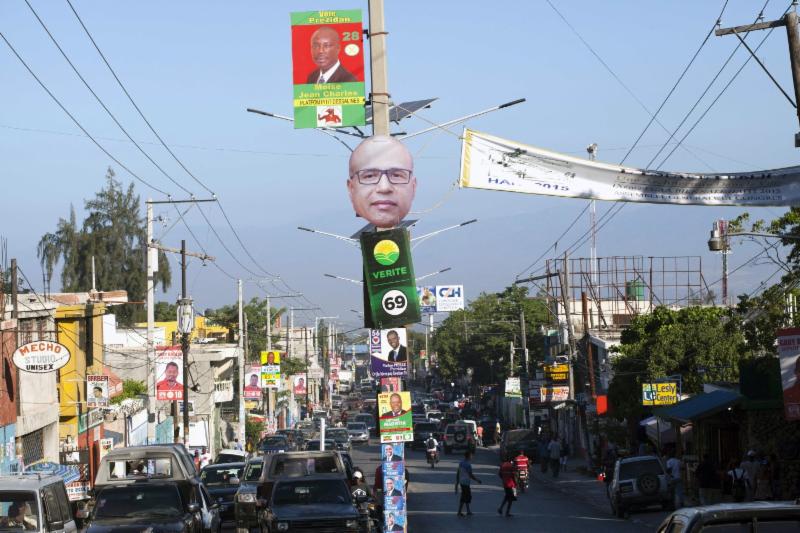
Cities and towns across Haiti are plastered with colorful campaign ads, leaving voters struggling to differentiate a swarm of candidates who grin from posters, banners and billboards slapped on nearly everything that doesn't move and a few that do.
Practically every public office is up for grabs in this year's unprecedented three-round balloting that is picking the next president, two-thirds of the Senate, the entire 119-member Chamber of Deputies and all local offices. Even by Haiti's rough-and-tumble standards, the parade of office-seekers and unpredictability of the elections is dizzying for many.
"There are so many candidates it's impossible to focus on it all and see if a few might actually have good ideas. Right now, this whole thing really gives me a headache," secretary Germithe Merzilus said with an exasperated sigh as a group of partisans walked by in matching T-shirts touting a campaign.
This troubled, poor Caribbean nation has at times been described as nearly ungovernable, yet a lot of people are lining up to try. The first round of Haiti's presidential vote on Oct. 25 features no less than 54 candidates - a fractured field that makes the 19 contenders in the election five years ago look almost reasonable.
They are seeking to succeed President Michel Martelly, who is barred by the constitution from serving a consecutive term.
The apparent front-runner is Jude Celestin, a former state construction chief who was the government-backed presidential candidate in 2010. Disputed preliminary results then showed Celestin edging out Martelly for a spot in the runoff ballot, but under international pressure Haiti's electoral authorities reviewed the count and eliminated him from the race.
Other major candidates include an ex-senator who has been Martelly's most vocal critic, a Port-au-Prince lawyer and public notary, a former police chief, and the leader of the political movement founded by former President Jean-Bertrand Aristide, a once dominant but increasingly divided party that was barred from the last election.
Spoiler candidates could include an influential sitting senator and a businessman who has made a Haitian fortune building a chain of "borlettes," gaudily painted outlets that play on New York State Lottery numbers.
With so many candidates, no one is likely to get more than 50 percent of the vote Oct. 25, meaning the two leading vote getters will face each other in a runoff Dec. 27.
The jam-packed presidential field is just a small share of the horde of Haitian politicians holding rallies to whip up enthusiasm, sometimes with traditional bands of drums, horns and leather tambourines.
Because elections were postponed amid political gridlock during Martelly's nearly five-year tenure, this month's first-round presidential contest is taking place on the same day as legislative runoff elections arising from a messy vote in August that featured more than 1,500 candidates and nearly 130 parties.
Officials will also hold re-do elections in 25 districts where violence, ballot stuffing and voter intimidation plagued voting two months ago. The almost certain presidential runoff Dec. 27 will also see more legislative contests as well as voting for all local offices.
Vijonet Demero, secretary-general of Haiti's frequently criticized Provisional Electoral Council, predicts the Oct. 25 voting will be far better organized than the initial parliamentary round two months ago, the results of which were only recently issued.
"We have learned from the mistakes of August 9th and we've been busy making all the necessary administrative changes," Demero said at the well-guarded headquarters of the council overseeing the $69 million election process, with more than $30 million provided by the U.S.
A major change, he said, will be greatly limiting the number of political party representatives allowed to observe at polling stations in a bid to avoid voter intimidation.
Political analyst Fritz Dorvilier, a sociologist at the State University of Haiti, is skeptical.
Dorvilier says the council has displayed "incompetent management" from the start and gives some observers the impression it has a hidden agenda, a frequent charge against Haitian electoral officials. Last week, one of the council's nine members abruptly resigned, citing a lack of conviction in the process.
Haitian balloting is never easy and in some districts election day is more like a convulsion. Democracy is still relatively new in Haiti, which for most of its history has endured coups and civilian and military dictatorships. The country only saw its first freely elected leader with Aristide in 1990, and he was ousted by a military coup just eight months later and was driven from his second term by a rebellion.
The past decade has been relatively stable politically, with two presidents chosen by election. However, ballot stuffing, violence and fraud allegations continue. In a recent report, the World Bank said violent incidents in Haiti are "clustered around political events such as elections and transitions" and stability remains fragile.
Many analysts have serious concerns about disorder during the upcoming presidential vote, which is expected to have a far higher voter turnout than the 18 percent seen for the August parliamentary voting.
"In Haiti, foreboding is a permanent state of mind when it comes to elections," said Mark Schneider of the International Crisis Group in Washington.
Still, Schneider and other analysts say these elections are critical for Haiti to advance as it continues an uneven recovery from the 2010 earthquake that devastated Port-au-Prince and surrounding areas.
Haiti remains a very poor country and voters have no shortage of worries. The cost of living keeps going up while decent jobs remain scarce. The majority of Haitians live without electricity or sanitation and more than 6 million out of 10.4 million inhabitants have incomes under the national poverty line of $2.44 a day.
The candidates all say their main focus is bringing opportunities to more citizens, but Haitian politicians have been saying that for a long time.
"I want to see Haiti get better faster," Merzilus, the secretary, said while standing next to a sheet-metal fence plastered with posters for a half dozen candidates. "If the next president can deliver that, I think everyone will support them."
Subscribe to:
Comments (Atom)
